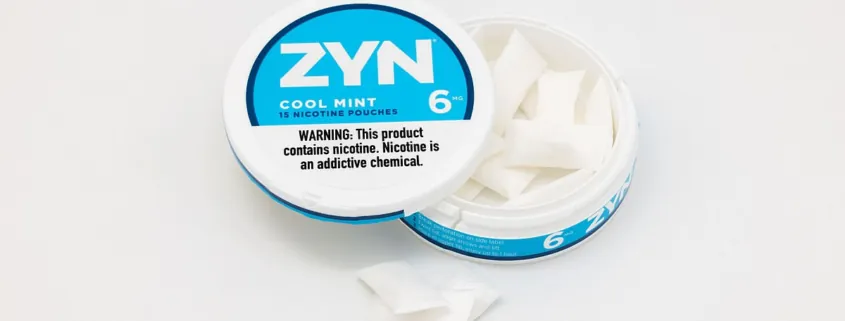Zyn Nicotine Pouches: Safer Than Smoking or New Risk?
An analysis of Zyn nicotine pouches, their FDA status, potential benefits for smokers quitting, and the addiction and health risks, especially for youth.
Many people trying to quit smoking search for “healthier” alternatives to help them break free from tobacco. Nicotine pouches, like the popular brand Zyn, are increasingly seen as one such option, often perceived as a safer way to consume nicotine. In January, the U.S. Food and Drug Administration (FDA) even authorized the marketing of several Zyn nicotine pouch products, stating that after an extensive scientific review, these specific products pose a lower risk of cancer and other serious health conditions compared to traditional smokeless tobacco like moist snuff or snus. But what exactly are these pouches, and are they truly a harmless step away from smoking?
What Are Nicotine Pouches and How Do They Work?
According to the Centers for Disease Control and Prevention (CDC), nicotine pouches are small packets containing a powder. This powder is typically made up of nicotine, various flavorings, and other ingredients. Unlike traditional tobacco products, these pouches are designed to be used orally without combustion or spitting.
To use a nicotine pouch, a person places it between their gum and lip. The pouch remains there for up to an hour, during which the powder dissolves, and nicotine is absorbed into the bloodstream through the mucous membranes in the mouth. It’s important to note that these pouches are not meant to be smoked, chewed, or swallowed.
The Appeal and the Additives
One of the main appeals of nicotine pouches is their potential to help adult smokers transition away from combustible cigarettes. They deliver nicotine without the harmful tar and many of the carcinogens found in cigarette smoke. However, it’s crucial to understand what else is in these pouches. Besides nicotine, they often contain food-grade additives, fillers, stabilizers like hydroxypropyl cellulose, pH adjusters to aid nicotine absorption, noncaloric sweeteners, and a variety of flavorings, as detailed by the National Library of Medicine.
While the FDA’s authorization for specific Zyn products suggests a reduced-risk profile compared to some other tobacco products, the high nicotine content in many pouches makes them highly addictive. This is a key concern, especially when considering their potential impact on different user groups.
Weighing the Benefits Against the Risks of Zyn
Vaughan Rees from the Harvard T.H. Chan School of Public Health acknowledges that nicotine pouches like Zyn might offer a pathway for adult smokers to quit cigarettes. However, he also voices a common concern: these products could unintentionally draw in young people who have never used nicotine before, potentially leading them to addiction.
Potential Risks Associated with Zyn:
- Addiction: Nicotine is a highly addictive chemical, and Zyn pouches deliver it effectively. This poses a risk for anyone, but as the CDC highlights, it’s especially dangerous for youth, young adults, and pregnant women.
- Youth Appeal: The variety of flavors and discreet nature of pouches can make them attractive to young people who do not smoke or vape. Rees specifically advises that teens and young adults who are non-smokers should avoid Zyn.
- Cardiovascular Risks: For individuals not already using nicotine, introducing it through products like Zyn may increase the risk of cardiovascular disease, according to Rees.
- Other Side Effects: WebMD lists potential side effects including hiccups, gum irritation, a sore mouth, and an upset stomach.
Comparing Pouches to the Dangers of Smoking
It’s important to remember the severe risks associated with traditional smoking. Smoking dramatically increases the risk of numerous cancers, especially lung, throat, and mouth cancers. It inflicts significant damage on the heart and lungs, leading to conditions like heart disease, stroke, and chronic respiratory illnesses such as COPD. Smoking also weakens the immune system and harms nearly every organ in the body.
When comparing nicotine pouches to smoking, the current understanding is that pouches like Zyn are less dangerous because they eliminate the combustion process and the inhalation of tar and many toxic byproducts. However, “less dangerous” does not mean “safe.”
Are Nicotine Pouches Truly Safer? The Jury is Still Out on Long-Term Effects
While the FDA has authorized marketing for some Zyn products as posing lower risks than certain other smokeless tobacco, the long-term health impact of nicotine pouches is still not entirely clear. They are a relatively new category of product. It’s also worth noting that nicotine pouches are not officially classified as “smokeless tobacco” in the same way as traditional dip or chew, and their regulation by the FDA, while evolving, may not be as comprehensive as for some other tobacco product categories. The focus remains on their potential for harm reduction for existing adult smokers, weighed against the risk of initiating new nicotine addiction, especially among youth.
- Malaysia Negeri Sembilan Backs Vape Ban, Awaits Clear Laws - August 5, 2025
- Is It Illegal to Vape or Smoke While Driving in Massachusetts? - August 5, 2025
- Austria Plans to Ban Disposable E-Cigarettes - August 5, 2025








